‘I begged him to stop’: Amanda Bisk alleges sexual assault by Olympics coach Alex Parnov
Amanda Bisk thought Alex Parnov would be the coach to guide her to Olympic heights. She reveals how for the past 15 years she has buried the pain of being abused, never telling a soul – until now.
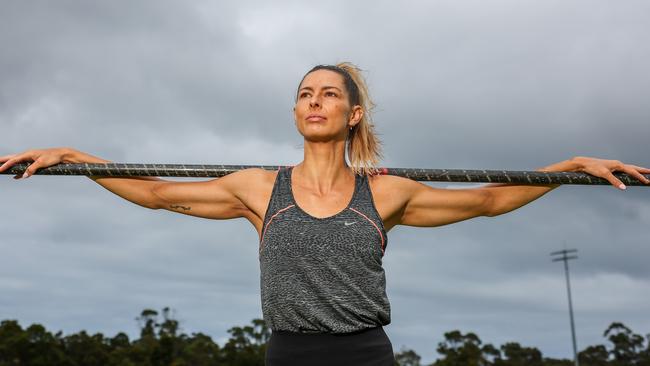
Amanda Bisk thought Alex Parnov would be the coach to guide her to Olympic heights. She trusted him – idolised him – but ultimately he groomed her, leading to a devastating alleged sexual assault.
Through tears, Bisk reveals how for the past 15 years she has buried the pain of being abused by Parnov, never telling a soul – until now.
“I hadn’t spoken to anyone about it — not my parents, not my partner, no one — because, in hindsight I just didn’t understand what was happening,” says Bisk, now 38. “And being a type-A personality and a people pleaser, I just wanted to do everything I could to be an amazing athlete.”
Bisk now feels compelled to tell her story after so many of her former teammates and some athletes she helped coach came forward in The Weekend Australian to reveal their shocking experiences at the hands of Alex Parnov.
Australia’s most celebrated pole vaulting coach preyed upon a succession of vulnerable girls and young women in his care, in a pattern of predatory behaviour that was ignored and then kept secret by the West Australian Institute of Sport for more than 15 years.
Some of Australia’s greatest Olympic champions, including gold medal winners Nina Kennedy and Steve Hooker, broke their silence to reveal how Parnov groomed, propositioned, sexually harassed and inappropriately touched female athletes.
WA Police are now assessing “potential criminal conduct” in the case, with WAIS apologising to athletes at a hastily convened Saturday press conference and Federal Minister Annika Wells announcing that athletes affected would be offered support under the AIS Mental Health Referral Network.
While Amanda Bisk competed in high and long jump during her teens, it was pole vaulting that caught her interest in 2005. Parnov identified her as a talent and accepted her to the training squad officially in 2006.
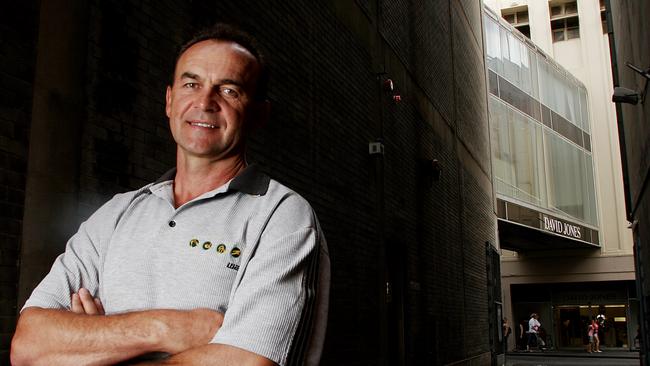
His coaching soon crossed a boundary. As with other Parnov victims, it began with the stroking of her leg on car trips, comments on her body and appearance, and inappropriate touching.
“Look at this body I built,” Parnov would say to her, eyeing her up and down.
“I would laugh it off … I brushed comments like these off as signs of affection,” Bisk says, admitting she was in his thrall.
The young athlete tried to do everything right, thinking the touching and comments showed he cared for her and that she could be on a trajectory to great things.
She had the Commonwealth Games in 2010 in her sights and then the London Olympics.
The attention she was receiving from Parnov she deemed as a good thing in her mind.
“There was this hierarchy in the group – if you were a really good athlete and if he really liked you, you’d get more attention, which meant you’d get more focus and could potentially become a better pole vaulter,” she says. “So I thought: ‘Oh, this affection might mean something good and you’ll give me lots of attention. I’ll get really good.’ ”
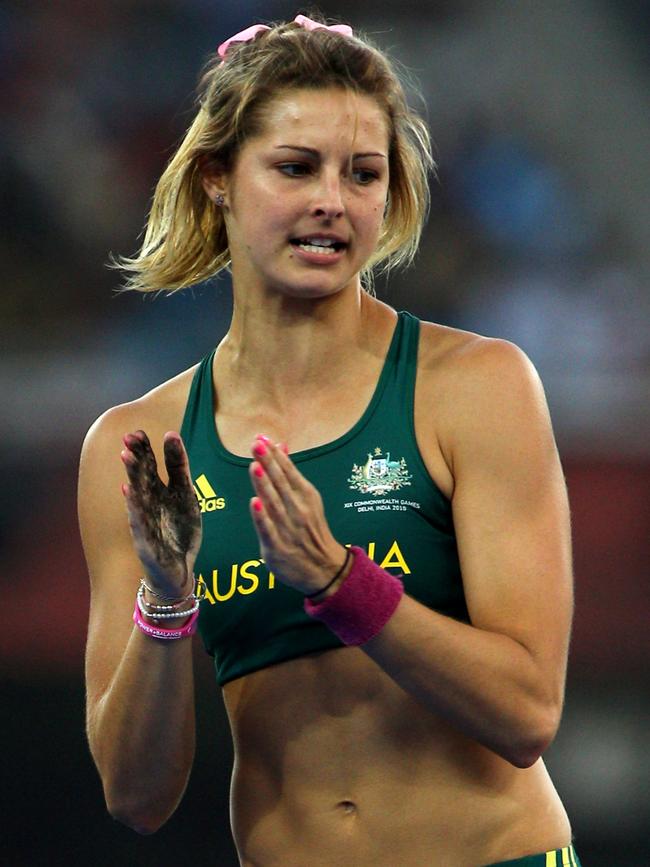
By 2009, at 23, she started travelling overseas with Parnov to competitions, including a meet in Japan. It’s here she was subjected to an alleged sexual assault by Parnov.
“We went to a competition in Japan and I had my own room, but it was quite common practice for him to just be in our rooms regularly to review footage or talk about competition and all that kind of stuff,” she says.
“So the night before our competition, he came to my room, and I could smell alcohol. I thought, wow, he seems a bit drunk. He said ‘I just wanted to come and talk about the comp tomorrow and tuck you in’.
“I was this naive, young girl. I was a late bloomer. So I thought, ‘Oh, tuck you in like a parent, say you’re going to do great at the comp tomorrow, and whatever.’ But then he actually got into the bed with me.
“I was nervous and shaking, and I didn’t understand what was happening. I could feel he had an erection, and he was rubbing it on me. I just started bursting into tears, crying, and he was saying inappropriate things like, ‘I have this because of you’. I was crying and begging him to stop so much that, thankfully, he did. I could tell he was frustrated with me. I just stayed in bed and hoped he would leave, and he did.”
Bisk breaks down as she recounts the experience.
“All these years, I’ve held on to this and not told a soul. I feel bad that I didn’t speak up earlier,” she says. “But my relationship with him, even now, is so complicated because he was an amazing coach. I was really close to his family; I would have dinner with them often. It was a loving environment, a really positive memory, and he did contribute a lot to my success … but at the same time, I couldn’t believe he would do things like that.”
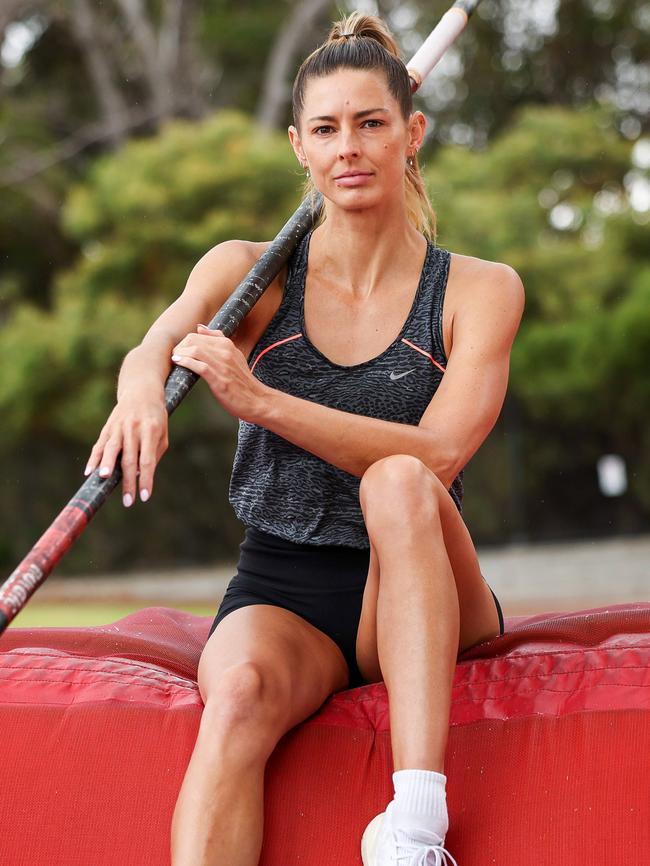
After that alleged assault, she recalls him acting like nothing had happened.
“I thought the next day would be … well, I thought it would be weird … but he just acted normal, and it was so strange,” she says. “And that’s why I thought: maybe I’m overreacting?”
Later that year, Parnov would be awarded WAIS Coach of the Year. Bisk kept her focus on becoming the best vaulter possible and still had her eye on representing her country at the Commonwealth Games in 2010. She made those Games, finishing sixth, but in the months leading up to that competition, at an invitational meet in Italy, she had a brutal fall that effectively ended her pole vault career.
It was the “lack of care” from Parnov after she fell from a height of 4m that shocked her.
“I fell into the box [a metal box in which the athletes must plant their pole when jumping] from 4m. The next day, I couldn’t even get out of bed because I was in that much pain. He never took me to hospital or to a doctor,” Bisk says.
“We just got on the plane and went back to our training base in Germany. I couldn’t train properly for weeks because I was in so much pain, and I was like: ‘Where’s the care? If you care about me you would take me to hospital so someone can see if I’m OK, if I broke anything.’ ”
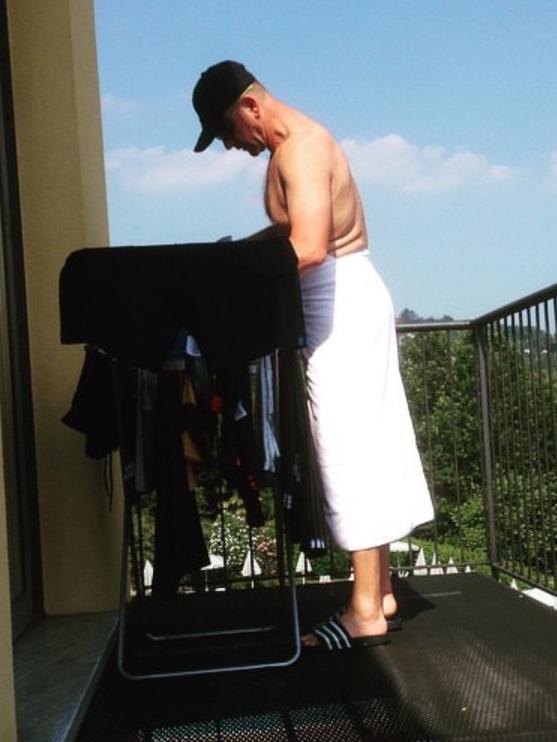
During her time with Parnov, he also demanded she lose weight. At one point, the athlete, who stands at 178cm, weighed just 48kg. In Parnov’s eyes, she’d suddenly lost too much weight, and he “palmed her off” to another coach “to put some muscle on”.
“I felt like I was just rejected, and the only reason I lost weight was because that’s what I thought he wanted – to get skin folds to be perfect,” she says.
Not long after the accident, Bisk started suffering from chronic fatigue.
“I’ve been speaking to Emma [Philippe] over the last few days, and she said something to me that I never really acknowledged was true: ‘He ruined all of our careers.’ That statement really hit hard because I always thought it was just my body that gave up,” she says.
“I’m just so, so, so sad that I’m not the only one. I can’t believe things have happened to other girls and other women.
“I retired in 2011. I didn’t know it was my retirement, but I removed myself from the sport and couldn’t even watch the Olympics in London because I felt like I should have been there. I actually ended up coaching at WAIS under Alex as an assistant coach between 2011 and 2013. I coached Nina and Emma, and with me being in that position, as a coach, and I hadn’t said anything [about my experience with Alex], I just feel so bad.”
Three months ago, Bisk felt a need to start pole vaulting again. After so much trauma, she wants the track to be her “happy place” again. Her friend Nina Kennedy, the current Olympic champion, sat in the stands to watch her recently compete.
“I wanted to do it because I didn’t want to look back at my life and regret that I didn’t try to make good memories with pole vault because I love it so much,” Bisk says. “It’s literally my life now. I train every day, and I’m making a comeback at 38 years old, which is ridiculous,” she laughs.
Bisk adds: “But I just want to make better memories.”
Now a qualified exercise physiologist and yoga instructor with a strong social media following of over half a million Instagram followers, Bisk has shared her story in the hope that WAIS and all sporting bodies improve to protect athletes from harm.
“The fact that I know now that things were said and people told their experiences and weren’t believed or were pushed aside makes me so angry,” she says.
“Obviously, organisations are hiring coaches, so they should have a responsibility. Even if they have the slightest inkling of something happening, they should look into it with every intention of making sure no one gets hurt.”


